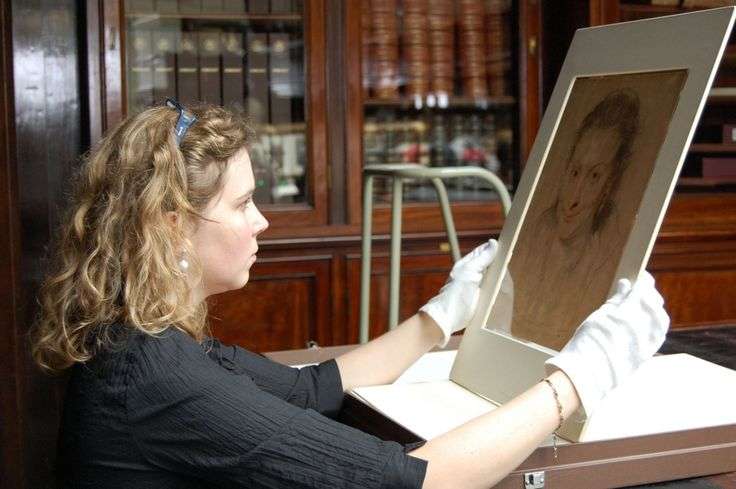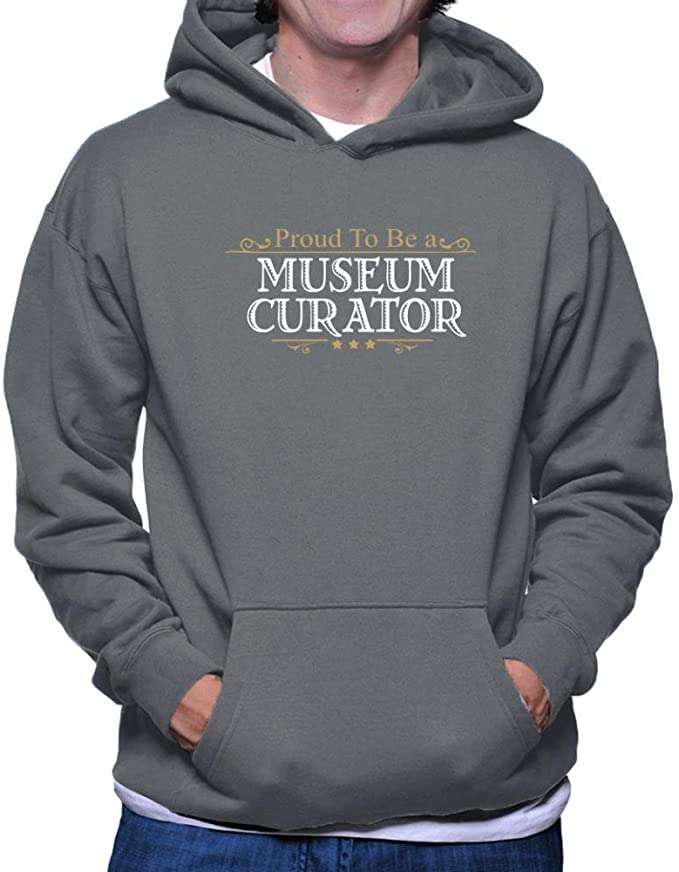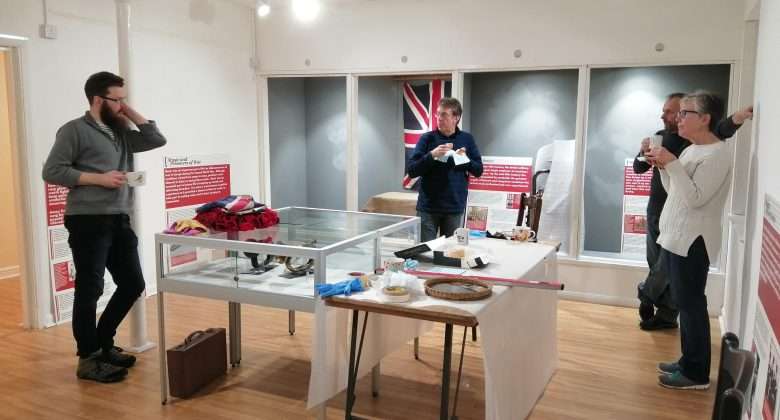How To Get A Job As A Curator
Im not exaggerating when I tell you that most days, someone, somewhere sends me an email asking how to get a job as a curator. So here are my suggestions for what to do
1. Do a relevant undergraduate degree either in the subject in which you hope to specialise, like the history of technology, or ceramics, or natural history, or choose something broad like a general history degree which will allow you to go off in different directions later.
2. Today lots of people do a Masters qualification either in the area in which he or she hopes to specialise, or more generally in museum studies. The course at Leicester is the gold standard.
3. And then, lots of candidates for curatorial jobs now have a PhD as well. Its not essential, but it helps. At Historic Royal Palaces, about half of us do, and half dont. If youre planning an art history PhD, make sure youll be studying objects and artefacts as well as just documents.
4. This one is essential. You need to volunteer in a museum. Youll find it very hard to get paid employment without the experience and contacts you get through voluntary work. Heres how to seek voluntary positions at Historic Royal Palaces.
6. Once youve got some experience, you should look out for adverts for paid positions. The places to look are: The Guardian, the Leicester University Jobs Desk, and the Museums Association.
What Do Museum Curators Do
Skillshare Instructor Eva Key at the Museum of Modern Art in New York.
What does a museum curator do? Turns out, theres no single museum curator job description, and the everyday duties of a museum curator vary significantly depending on the size of the museum or gallery where they work.
A large, well-known, and well-funded museum like New Yorks Metropolitan Museum of Art or the Museum of Modern Art will have many curators, each working on specific collections. Smaller museums and galleries, on the other hand, may only have one curator who oversees the running of the whole institution. These folks may also work with guest curators for traveling exhibits.
Generally speaking, some of the museum curator job requirements are:
- Taking care of items in the museum or gallerys permanent collection
- Planning special exhibits of items in the permanent collection
- Liaising with other museums and institutions for traveling exhibits
- Acquiring new artworks and artifacts
- Recording and documenting the items in the collection
- Writing or editing textual displays
- Writing and planning outreach and promotional materials for the museum
- Planning community events and fundraisers
- Managing the finances of the museum or department
What Is A Good Salary Per Year
What are the factors that would determine if it is a good salary or not? The median weekly earnings for full-time workers were $854 in the fourth quarter of 2017, according to the Bureau of Labor Statistics , which translates into an annual median salary of $44,408, says Jill Gonzalez, an analyst at WalletHub.
You May Like: Museum Websites With Virtual Tours
What Does A Career As A Museum Curator Involve
Museum curators are the people who decide what we get to see when we walk through a museum’s door. They plan and oversee the arrangement, cataloguing, maintenance and exhibition of collections. Some curators may also help coordinate programs to educate special visitors to the museum, such as school classes and university field trips. To organise successful exhibitions and educational programs, curators often research topics and items relevant to the collections they have on display.
Educational Background Needed For A Museum Curator

Most curators have at least one graduate degree, and sometimes two. Because the job combines an in-depth knowledge of art or history with administrative skills, it can be important to study both the specific area in which you hope to curate as well as a degree in museum studies. Curators may need skills such as public speaking and grant writing in addition to having a knowledge of art or history.
Many art historians, which is what some curators are, must also learn at least one foreign language. Those who study art history all the way to the Ph.D. level often need to learn two languages. Further, they must demonstrate at least a reading, if not speaking knowledge, of the language theyre studying.
According to the Penn State College of Arts and Architecture, most art history students learn German, at least if theyre studying Western art. Popular languages to study after that include Spanish, French or Italian.
However, the Penn State site also tells prospective art historians that they may also want to study the language that deals specifically with their area of specialization. For example, if they have a passion for Chinese or Japanese art, then thats the language they should study next. Doing so will help them in their career search. If they want to be a curator for an Asian art museum, then those languages will be helpful, particularly if they must read in those languages in order to put together an exhibit.
Maxim Sorokopud
Don’t Miss: Nascar Museum Daytona Beach Florida
What Degree Do You Need
Masters Degree
One of the most common questions that we always get is what major or degree do I need to become Curators or what courses do I need to take.
We also asked Curators what did they major in college or university and here are the top 5 most popular majors that came up.
| Museology or Museum Studies |
| Art History, Criticism and Conservation |
| Public or Applied History |
Most museums require curators to have a masters degree in an appropriate discipline of the museums specialtyart, history, or archaeologyor in museum studies. Some employers prefer that curators have a doctoral degree, particularly for positions in natural history and science museums.
Get Your Bachelor’s Degree
To become a museum curator, you’ll need a bachelor’s degree. If you plan to work in an art setting, a Bachelor of Fine Arts offers a good educational foundation in practical art skills and art history. If you’re planning to work in a history museum or science museum, then a degree in a field related to one of those would be a good choice.
During your bachelor’s degree program, you can begin to gain experience with internships and externships. This will also help you expand your network, which can assist you in getting a job when you graduate.
You May Like: How Much Are Neon Museum Tickets
Daniel Martin Curator Of Making And Lucy Bamford Curator Of Art Derby Museums
Tell us something we dont know about being a museum curator
Daniel: Probably most things. The most common follow-up question when I tell people what I do for a living is: Great! Whats that then? Its quite hard to answer. We dont spend all day lurking in musty stores any more its all about people. Its their stories and complexity that really make collections pop.
Lucy: A popular misconception concerns museum gloves. We rarely use white cotton gloves. Nowadays we use synthetic rubber ones, which make your hands sweat. Its not as glamorous as it might appear.
What career insight would you give to an aspiring curator?
Daniel: Nothing is as important when youre starting out as gaining experience. An undergraduate and postgraduate degree is a wonderful foundation, but employers will see it as just that. Experience gained via volunteering, internships and work placements will always be preferred over a degree from a prestigious university.
With government cuts facing our sector over the coming years, make sure that being a curator is something to which youre totally committed. There will be lots of short-term contracts and project-related work throughout your career. Curating is no longer a suitable choice for those seeking long-term stability.
Whats your favourite career artefact and why?
What career insight would you give to an aspiring curator?
Whats your favourite career artefact and why?
How To Become A Museum Curator
A career as a museum curator can be rewarding for a variety of people. Museum curators are highly educated individuals who manage some of the world’s most important artifacts. Understanding how to become a museum curator can help you prepare for a career in this field. In this article, we discuss what a museum curator is, examine their duties, highlight the skills they should possess, and explore how to become one.
Recommended Reading: Museum Of Fine Arts St Pete
Earn A Bachelors Degree
For those wondering how to become a museum curator, the first step is to acquire the proper education. The BLS states that most curator positions require a bachelors and masters degree in a related field, such as art history, history, archaeology, or museum studies. Bachelors degrees like the online Maryville University Bachelor of Arts in History help students cultivate the skills considered fundamental to the position, including project management competencies, technical skills, and soft competencies such as organizational and communication skills.
Through the study of social and cultural history, curators are able to assign meaning and connection between historical events and put them in context with todays culture. Curators must develop strong research, writing, verbal communication, critical analysis, and digital literacy skills to succeed in this highly competitive field.
Where To Study In India
Department of Museology, Calcutta University, Kolkata, Banaras Hindu University, Jiwaji University, Gwalior, MS University Baroda, National Museum Institute ,Ewing Christian College, Allahabad, Osmania University, Solapur University ,Vikram University are some of the known institutions offering courses like MA, MSc , PhD Museology and other required courses to become a museum curator.
Don’t Miss: Museum Of Art And Design Nyc
Do Art Curators Make Good Money
Importantly, San Mateo, CA has a moderately active Art Curator job market with only a few companies currently hiring for this type of role.What are Top 10 Highest Paying Cities for Art Curator Jobs. City San Francisco, CA Annual Salary $90,858 Monthly Pay $7,571 Weekly Pay $1,747 Hourly Wage $43.68.
Museum Curator Job Outlook

The BLS expects employment of curators to grow 14% from 2016 to 2026, compared to 7% for all other occupations. This robust projected growth is due to the increasing public interest in museums and other cultural and historical institutions. Museums will need more curators to manage and organize collections for public consumption.
AAM notes in its 2018 Museums as Economic Engines report that U.S. museums contribute almost $50 billion to the nations economy and directly employs more than 372,100 people. The Princeton Review remarks that, as the industry grows, curators will continue to collaborate with colleagues for grant writing, publicity, and fundraising projects that are vital to the growth and longevity of their careers.
Innovation may also be a key driver of industry growth. The rise of technology has yielded the emergence of digital collections, such as oral histories and virtual museum tours that are available online. Curatorial staff may manage these collections as they continue to grow in popularity.
Don’t Miss: Virtual Art Museum Tours Online
Ready To Find The Perfect College Degree
An interest in art or history might lead someone into a career as a museum curator. The word curator originally comes from Latin and has the meaning of someone who is a guardian or overseer. That meaning is still applicable today, as a curator in a museum is someone who oversees either an entire museum collection or a specific collection within a museum. Its important that a curator have a background and education in the specific field in which they curate. That means many curators have studied art, art history, or other types of history or science, depending on the type of museum in which they work.
Get An Undergraduate Degree
To become a museum curator, you need to have an undergraduate degree in a related field. The degree that you choose may differ according to what you want to specialise in. For example, a degree in fine art is good if you plan to work in an art setting as it gives you practical skills and an understanding of art history. Some universities offer internships or placement opportunities for students wanting to develop their creative assets. These opportunities offer you the chance to connect with professionals in the field who could assist you with advice or graduate jobs.
Don’t Miss: Decordova Sculpture Park And Museum Wedding
Whats It Like Working In A Museum
A museum career is simultaneously one of the most rewarding and frustrating endeavors youll ever undertake. Theres a lot of competition for a limited pool of jobs, the compensation tends to be not great, the hours can be killer and youre going to end up working when youd rather be with your friends or family.
Career Path And Progression
You could work in small independent museums and galleries to large public sector and national institutions like the Tate or British Museum.
There are lots of different opportunities to move on in the sector from business management to public engagement and education roles. You will need to plan your continuous professional development and take advantage of the training available in the sector to advance your career.
Recommended Reading: Hollywood Wax Museum Branson Tickets
Museum Curator: Job Description Salary And Skills
Museum curators acquire and protect museum collections and present these items to the public.
Curation often involves a wide and varied assortment of tasks including:
- Fundraising for the museum
- Creating educational materials associated with collections
- Authenticating items
- Designing exhibits
Curation requires both very deep and very broad expertise. Plus, the work can vary a lot, depending on the kind of museum.
Curators at art museums must be experts in art, art history, and art authentication and conservation. Curators at history museums must be historians. Curators at science museums must have had some scientific training.
But all types of curation share certain responsibilities, and therefore require consistent skills. Find out more about what it’s like to work as a museum curator, along with the key skills necessary for this role.
Engagement And Community Curation
Education and outreach play an important role in some institutions. It has led to the emergence of titles such as “Curator of Education” and “Curator of Public Practice”.
Community curation also known as “co-curation”, “public curation” or “inclusive curation”is a movement in museums, public humanities organizations, and within the biocuration field to involve community members in various curatorial processes, including exhibit development and programming.
Community members involved in community curation are likely not trained as museum professionals, but have vested interests in the outcomes of curatorial projects. Community curation is a response to the 19th century “information transmission” model of learning, in which museums are sources of expert knowledge and visitors are the recipients of that expertise. Community curation seeks not to abandon expertise, but to broaden definitions of expertise to “include broader domains of experience” that visitors bring to museums.
Community curation practices are varied. Organizations have conducted community outreach at the beginning of exhibition projects, and convenes community advisory committees at various stages in the curatorial process. or have accepted exhibit proposals from community members and trained them in curatorial skills to co-create exhibits. Such efforts to allow communities to participate in curation can require “more not less expertise from museum staff”.
Recommended Reading: Natural History Museum New York Shop
The Average Salary For Museum Curators
The average salary for a curator in the United States is $16.94 per hour, according to Indeed Salaries. That translates to $35,235 annually for people who work full-time in the profession. Most opportunities for museum curators are full-time roles, although some could be part-time, temporary, interim or contract.
How To Become A Curator

wikiHow is a wiki, similar to Wikipedia, which means that many of our articles are co-written by multiple authors. To create this article, volunteer authors worked to edit and improve it over time. This article has been viewed 21,775 times.Learn more…
Curators are responsible for managing a museum, botanical garden, historic site or nature center. They are responsible for educating the public about history, science, art, or any number of fascinating topics. It can be an extremely rewarding career, but the road can be long. There are a few things you can do to make sure you have the best application possible for a curator job.
Also Check: Corpus Christi Hotels Near Selena Museum
How Do You Get A Job In An Art Museum
Lets see how you can get museum jobs! Are you sure about doing museum works? Do a proper research about museum jobs. Start from the entry-level museum jobs. Museum employment: Attend events, seminars, workshops or conferences organised by museums. There are always other opportunities in museum works.
What Kind Of Jobs Are There In A Museum
The 16 Must-Have Museum Jobs on the MarketArchivist. Archivists are responsible for collections of items and records kept in the museum. Conservator. Conservators work in the archives as well to preserve historical items. Curator. Director. Docent. Exhibit Designer. Graphic Designer. Historian.More items
Read Also: Who Designed The African American Museum
How Can One Become A Museum Curator In India
To begin with, one should have passed their 10+2 with science and mathematics from a reputed institution with good marks in the concerned examination.The next step would be to obtain the Bachelor of Arts degree in Archeology and Museology from a recognized university. One also needs a Master of Arts degree in Museology or Postgraduate Diploma in Museology or a Masters degree in Zoology/ Botany/ Geology/ Geography / Earth Sciences/Anthropology/ Agriculture/ Environmental Science/ Marine Science.Post graduates can apply for any internship or training or can join as volunteers in museums while pursuing their graduation. This increases the chance to easily get into employment. Some employers may also require candidates who possess a doctorate degree in related field. On completing the Masters degree, students can apply for the concerned doctorate degree programmes which is through entrance exams.